新概念第一册第9课
- 格式:docx
- 大小:15.37 KB
- 文档页数:3
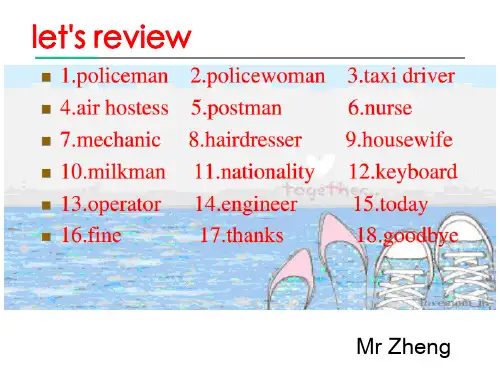
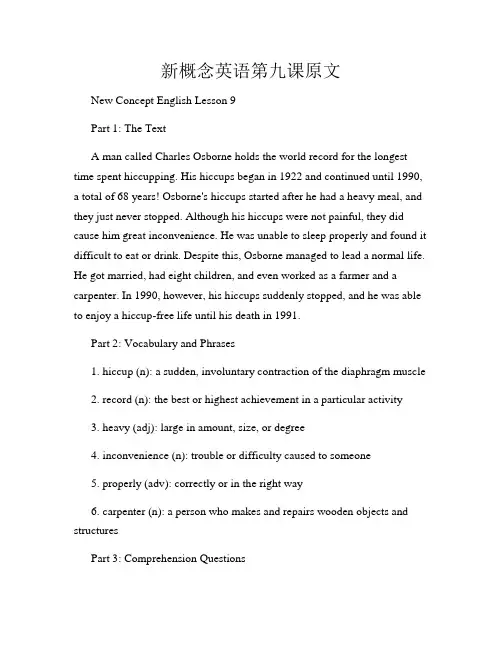
新概念英语第九课原文New Concept English Lesson 9Part 1: The TextA man called Charles Osborne holds the world record for the longest time spent hiccupping. His hiccups began in 1922 and continued until 1990, a total of 68 years! Osborne's hiccups started after he had a heavy meal, and they just never stopped. Although his hiccups were not painful, they did cause him great inconvenience. He was unable to sleep properly and found it difficult to eat or drink. Despite this, Osborne managed to lead a normal life. He got married, had eight children, and even worked as a farmer and a carpenter. In 1990, however, his hiccups suddenly stopped, and he was able to enjoy a hiccup-free life until his death in 1991.Part 2: Vocabulary and Phrases1. hiccup (n): a sudden, involuntary contraction of the diaphragm muscle2. record (n): the best or highest achievement in a particular activity3. heavy (adj): large in amount, size, or degree4. inconvenience (n): trouble or difficulty caused to someone5. properly (adv): correctly or in the right way6. carpenter (n): a person who makes and repairs wooden objects and structuresPart 3: Comprehension Questions1. How long did Charles Osborne's hiccups last?2. What caused Osborne's hiccups?3. How did his hiccups affect his daily life?4. When did Osborne's hiccups finally stop?Part 4: Language Points1. "His hiccups began in 1922 and continued until 1990."- The verb "began" is in the past simple tense, indicating the start of an action in the past.- The verb "continued" is in the past simple tense, indicating the ongoing nature of an action in the past.2. "Although his hiccups were not painful, they did cause him great inconvenience."- The conjunction "although" introduces a contrast between two ideas.- The verb "were" is in the past simple tense, indicating the state of something in the past.- The verb "did cause" is in the past simple tense, indicating the cause and effect relationship between two actions in the past.3. "He was unable to sleep properly and found it difficult to eat or drink."- The verb "was" is in the past simple tense, indicating the state of someone in the past.- The verb "found" is in the past simple tense, indicating the discovery of a difficulty in the past.4. "In 1990, however, his hiccups suddenly stopped, and he was able to enjoy a hiccup-free life until his death in 1991."- The adverb "suddenly" describes the manner in which his hiccups stopped.- The verb "stopped" is in the past simple tense, indicating the end of an action in the past.- The verb "was able to enjoy" is in the past simple tense, indicating the ability to experience something in the past.Part 5: Discussion Questions1. Have you ever experienced hiccups? How did you get rid of them?2. Can you think of any other long-lasting medical conditions that people have experienced?3. How do you think Charles Osborne managed to lead a normal life despite his hiccups?4. Do you know any interesting records or achievements held by individuals?Conclusion:Charles Osborne's 68-year-long hiccups were a remarkable medical phenomenon. Despite the inconvenience they caused, he managed to live afulfilling life. His story serves as a reminder of the resilience of the human spirit in the face of adversity.。
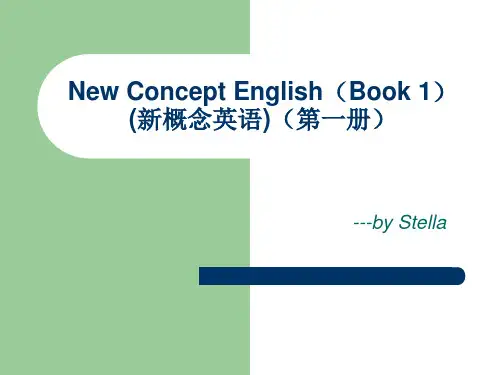
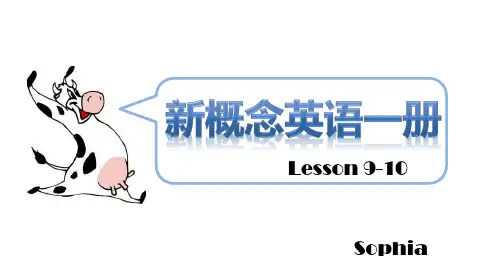
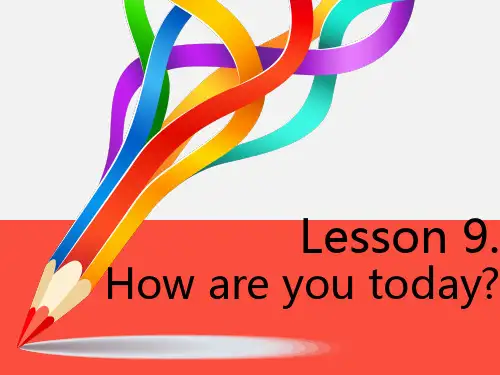
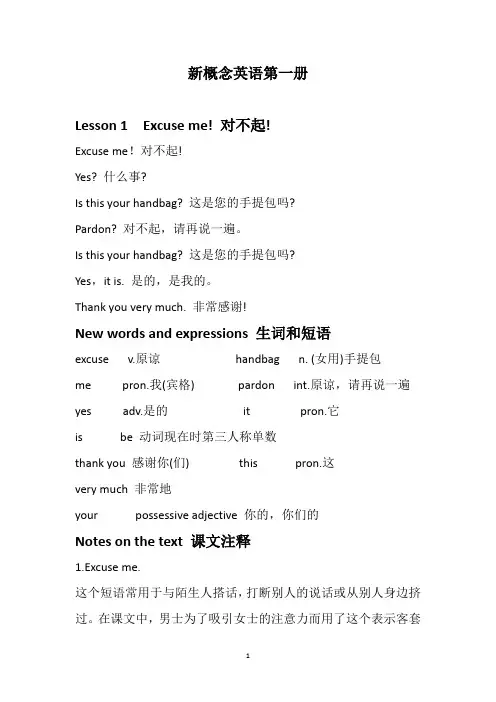
新概念英语第一册Lesson 1 Excuse me! 对不起!Excuse me!对不起!Yes? 什么事?Is this your handbag? 这是您的手提包吗?Pardon? 对不起,请再说一遍。
Is this your handbag? 这是您的手提包吗?Yes,it is. 是的,是我的。
Thank you very much. 非常感谢!New words and expressions 生词和短语excuse v.原谅handbag n. (女用)手提包me pron.我(宾格) pardon int.原谅,请再说一遍yes adv.是的it pron.它is be 动词现在时第三人称单数thank you 感谢你(们) this pron.这very much 非常地your possessive adjective 你的,你们的Notes on the text 课文注释1.Excuse me.这个短语常用于与陌生人搭话,打断别人的说话或从别人身边挤过。
在课文中,男士为了吸引女士的注意力而用了这个表示客套的短语。
2.Pardon?全句为I beg your pardon. 意思是请求对方把刚才讲过的话重复一遍。
Lesson 3 Sorry, sir. 对不起,先生。
My coat and my umbrella please. 请把我的大衣和伞拿给我。
Here is my ticket. 这是我(寄存东西)的牌子。
Thank you, sir. 谢谢,先生。
Number five. 是5号。
Here's your umbrella and your coat. 这是您的伞和大衣。
This is not my umbrella. 这不是我的伞。
Sorry, Sir. 对不起,先生。
Is this your umbrella? 这把伞是您的吗?No, it isn't. 不,不是!Is this it? 这把是吗?Yes, it is. 是,是这把。
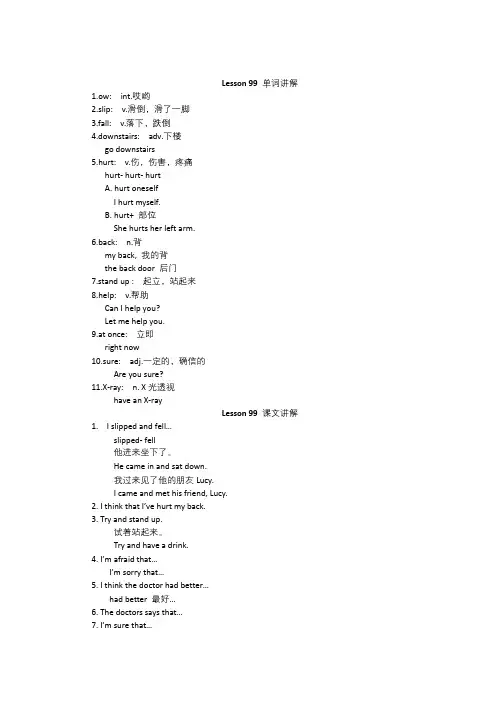
Lesson 99 单词讲解1.ow: int.哎哟2.slip: v.滑倒,滑了一脚3.fall: v.落下,跌倒4.downstairs: adv.下楼go downstairs5.hurt: v.伤,伤害,疼痛hurt- hurt- hurtA. hurt oneselfI hurt myself.B. hurt+ 部位She hurts her left arm.6.back: n.背my back, 我的背the back door 后门7.stand up : 起立,站起来8.help: v.帮助Can I help you?Let me help you.9.at once: 立即right now10.sure: adj.一定的,确信的Are you sure?11.X-ray: n. X 光透视have an X-rayLesson 99 课文讲解1. I slipped and fell…slipped- fell他进来坐下了。
He came in and sat down.我过来见了他的朋友Lucy.I came and met his friend, Lucy.2. I think that I’ve hurt my back.3. Try and stand up.试着站起来。
Try and have a drink.4. I’m afraid that…I’m sorry that…5. I think the doctor had better…had better 最好…6. The doctors says that…7. I’m sure that…Lesson 99 语法讲解宾语从句: 句子作宾语。
I love you.I think (that) he is awful零部件:A. 主句& 从句B. 引导词:thatShe says (that) he loved her.He knows (that) she has gone.He is sorry (that) he will leave.结论1: 主句一般现在, 从句任何时态。
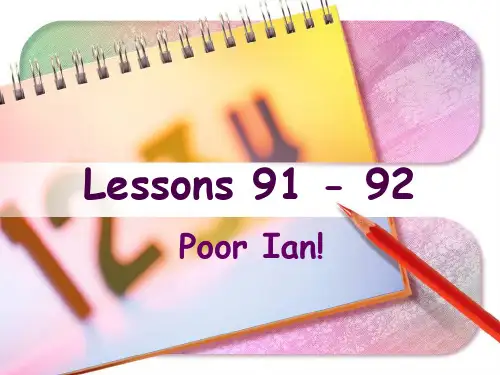
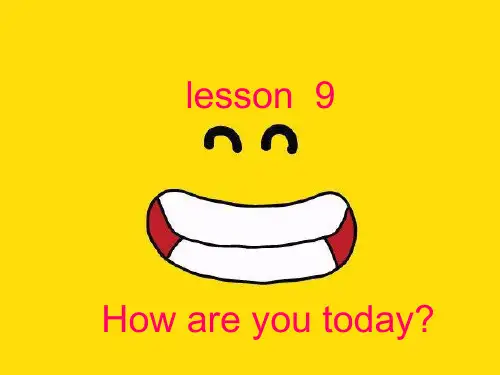
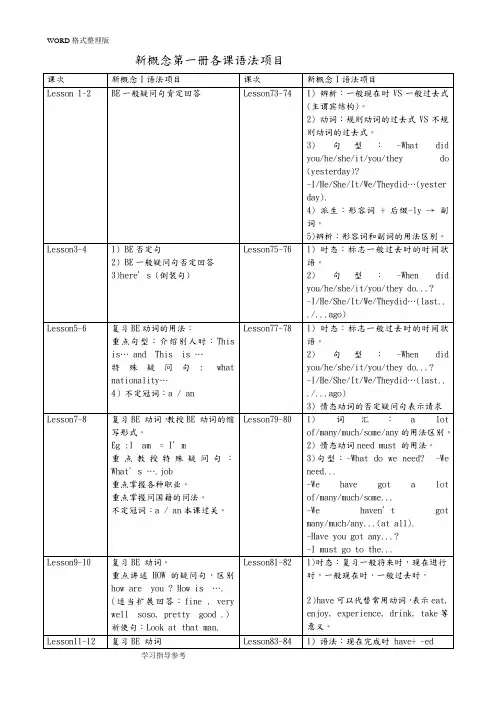
新概念第一册各课语法项目课次新概念I语法项目课次新概念I语法项目Lesson 1-2 BE一般疑问句肯定回答Lesson73-74 1) 辨析:一般现在时VS一般过去式(主谓宾结构)。
2) 动词:规则动词的过去式VS不规则动词的过去式。
3) 句型:-What didyou/he/she/it/you/they do(yesterday)?-I/He/She/It/We/Theydid…(yesterday).4) 派生:形容词 + 后缀-ly → 副词。
5)辨析:形容词和副词的用法区别。
Lesson3-4 1) BE否定句2) BE一般疑问句否定回答3)here’s (倒装句) Lesson75-76 1) 时态:标志一般过去时的时间状语。
2) 句型:-When didyou/he/she/it/you/they do...?-I/He/She/It/We/Theydid…(last.../...ago)Lesson5-6 复习BE动词的用法:重点句型:介绍别人时:Thisis… and This is …特殊疑问句: whatnationality…4)不定冠词:a / an Lesson77-78 1) 时态:标志一般过去时的时间状语。
2) 句型:-When didyou/he/she/it/you/they do...?-I/He/She/It/We/Theydid…(last.../...ago)3) 情态动词的否定疑问句表示请求Lesson7-8 复习BE 动词,教授BE 动词的缩写形式。
Eg :I am = I’m重点教授特殊疑问句:What’s ….job重点掌握各种职业。
重点掌握问国籍的问法。
不定冠词:a / an本课过关。
Lesson79-80 1) 词汇: a lotof/many/much/some/any的用法区别。
2) 情态动词need must 的用法。
3)句型:-What do we need? -Weneed...-We have got a lotof/many/much/some...-We haven’t gotmany/much/any...(at all).-Have you got any...?-I must go to the...Lesson9-10 复习BE 动词。
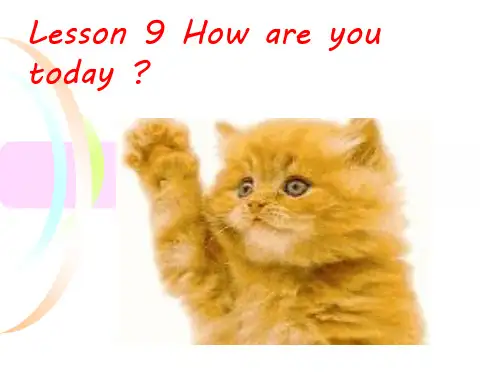
新概念英语第一册笔记-第3-4课1.请把我的大衣拿来。
2.请把我的橡皮拿来。
3.请把我的可乐拿来。
4.请把我的手提包拿来。
5.请把我的大衣和雨伞拿来。
6.请把我的书和钢笔拿来。
7.请把我的铅笔盒尺子拿来。
8.这是我的票。
(传递过去)9.这是我的水/果汁/牛奶。
10.这是我的伞。
(介绍,没有传递)11.这是我的自行车。
12.这是我的汉堡。
13.这不是我的伞。
(否定句)14.这不是你的小熊。
15.这不是你的兔子。
16.这是你的伞吗?17.这是你的苹果吗?18.这是你的蛋糕吗?19.不,它不是。
(否定答语)20.是,它是。
(肯定答语)21.非常感谢。
22.不客气.第3-4课1.My coat ,please.2.My eraser,please.3.My coke,please.4.My handbag,please.5.My coat and my umbrella,please.6.My book and my pen,please.7.My pencil and my ruler,please.8.Here is my ticket.9.Here is my water./juice/milk.10.This is my umbrella.11.This is my bike.12.This is my hamburger.13.This is not my umbrella.14.This is not your bear.15.This is not your rabbit.16.Is this your umbrella?17.Is this your apple?18.Is this your cake?19.No, it isn’t.20.Yes, it is.21.Thank you very much.=Thanks very much.22.You’re welcome .=That’s all right.=That’s OK第5-6课1.早晨好。
Lesson 91 Poor Ian!可怜的伊恩1. Has he moved to his new house yet?No , not yet. 不,还没有。
这是简略回答,完整的回答是:No,He hasn’t moved to his new house yet.2.still [ ] adv. 仍然He’s still here.They are still working on it.3.I’ll miss him.I’ll = I will I shall we’ll = we will we shallmiss vt. 思念I miss home very much.miss vt. 错过I missed the train yesterday.4.He has always been a good neighbour.(因为伊恩在这住了好长时间,所以邻居们说他一直如何如何,用了现在完成时)5. person n. 人(单数的概念)A brave person. 勇敢的人。
He’s a very nice person. 他是一个非常好的人。
She’s the right person for this job.people n. 人们(复数的概念)当需要表示复数形式时,往往用people这个词。
When will the new people move into this house? 新住户什么时候搬进这所房子?There’re a lot of people in the park.6.all 用在三者或三者以上两者用bothWe’ll all miss him.My husband and I will both miss him.7.move into this house = move inWhen will the new people move into this house.I think that they’ll move in the day after tomorrow.8.I think that they’ll move in the day after tomorrow.the day before yesterday 前天yesterday 昨天today 今天tomorrow 明天the day after tomorrow 后天9.I will = I’llI’ll miss him.We’ll all miss him.They’ll move in the day before yesterday.10.Please give him my regards.请代我问候他。
新概念第一册第9课
新概念英语是一套广泛使用的英语教材系列,其中第一册第9课是其中的一节课。
下面我将从多个角度全面完整地回答与该课程相关的问题。
1. 内容概述:
第一册第9课主要介绍了一位年轻人在医生办公室等候就诊的经历。
课文中描述了他与其他患者的互动以及他与医生的对话。
通过这个故事,学生可以了解到一些与看病就医相关的词汇和表达方式。
2. 课文重点:
第一册第9课的重点是学习如何描述病症和疼痛的感觉,以及与医生交流的基本用语。
学生需要掌握一些词汇,如headache(头痛)、sore throat(喉咙痛)、fever(发烧)等,并学会用英语表达自己的不适感。
3. 语法重点:
在第一册第9课中,语法重点主要集中在一般现在时和一般过
去时的运用。
学生需要学会正确地使用这两个时态来描述自己的病
情以及过去的经历。
4. 学习方法:
为了更好地学习第一册第9课,学生可以采取以下学习方法:
首先,认真阅读课文,理解故事情节和主要词汇。
其次,重点记忆和理解课文中的语法点和表达方式。
接着,进行口语练习,模拟与医生的对话,加强语言运用能力。
此外,可以找一些相关的练习题或者参考答案进行巩固和复习。
5. 学习目标:
通过学习第一册第9课,学生应该能够:
理解并运用与看病就医相关的词汇和表达方式。
描述自己的病情和疼痛感。
运用一般现在时和一般过去时来描述自己的病情和过去的经历。
提高听力和口语能力,能够与医生进行简单的交流。
总结起来,第一册第9课是新概念英语系列教材中的一节课,
主要介绍了与看病就医相关的内容。
学生需要通过学习掌握相关的
词汇、语法和表达方式,以提高自己的英语能力。
希望以上回答能
够满足你的要求,如果还有其他问题,请随时提问。